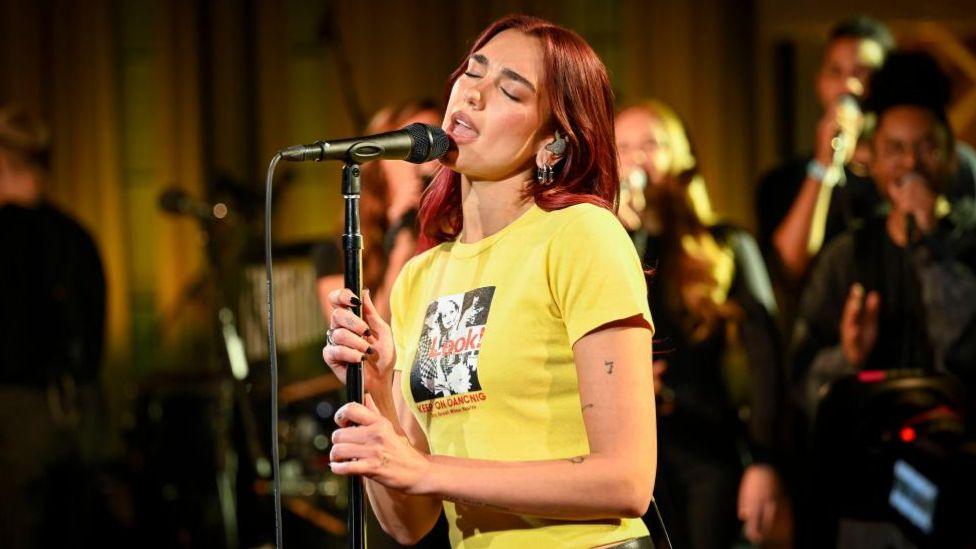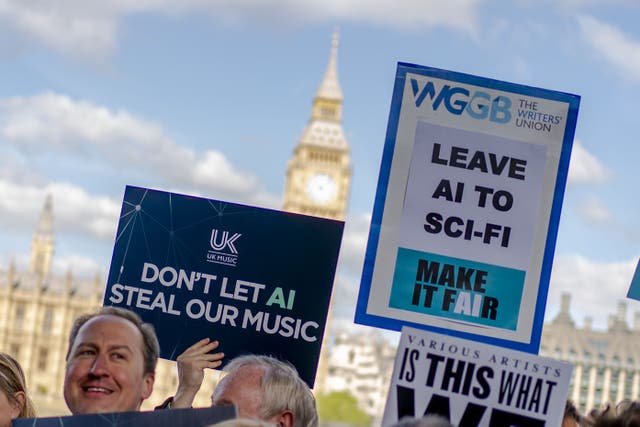Artificial Facade: The Battle for Real Artistry in the Age of AI
A coalition of 400 musical legends challenges AI's impact on artistry, urging a re-evaluation of copyright laws to safeguard human creativity.

In today’s digital age, where algorithms promise to craft a symphony without a single human heartstring, a coalition of musical legends has called time on a dangerous masquerade. Picture 400 artists—individuals who’ve poured their lifeblood into every chord and lyric—standing up against the hollow hum of artificial creativity. Spearheaded by icons like Elton John, Coldplay, and Dua Lipa, this assembly seeks more than just a change in copyright laws; they demand the unmasking of artificial intelligence's deceitful façade.
A Lament for Lost Souls

Consider this: decades of blood, sweat, and the ecstasy of true inspiration now risk being siphoned into the unfeeling circuits of AI. These machines, devoid of soul, allure us with melodies crafted from the stolen echoes of true artists. The push for transparency is a rallying cry to strip away this digital illusion—a plea to expose the folly of treating authentic human emotion as mere data.
In an age where technology allures with its counterfeit glimmer, the threat is clear. AI-generated music, while competent, is but a hollow replacement for the vibrancy of human creativity. It’s a glistening facade, promising brilliance, yet delivering emptiness—a soulless echo void of the emotional gravity that gives music its power.
The Mirage of Machine Melody

Imagine a realm where every tune is a calculated formula, perfectly structured yet utterly sterile. When a computer-generated song plays, it's like gazing at a flawless replica; impressive at a glance but lacking the unique imperfections that breathe life into genuine artwork. In this world, the heart and spontaneity that once defined our musical landscape are at risk of being drowned in a sea of sameness.
The push by these artists is not simply to protect their own rights but to safeguard the sanctity of artistry itself. It is a call to acknowledge that creativity cannot be concocted in a sterile laboratory—it is felt, raw, and imperfect. Art emerges from the depths of human experience, not from pre-programmed algorithms.
Reviving the Human Touch

The demand for AI companies to disclose their practices is more than a legislative plea—it is a cultural and moral imperative. When the veil lifts, revealing which songs have been repurposed for training these models, it will lay bare the artistic theft that masquerades as innovation.
Yet, the essence of music cannot be captured by mere replication. It is an expression of life itself, and this movement underscores a necessity: to reclaim art as a testament to the human condition, not as a shadow puppeteered by code. In fighting for this transparency, these artists champion more than their own legacy; they stand for the authentic voices of those who will come after them.
Let us not be seduced by the alluring whisper of artificial orchestration. Instead, let us celebrate the raw, unpredictable beauty that true human creativity brings into the world. The soul of music is a tapestry of emotions, woven together by imperfect hands. In a future inundated with artificial melodies, may we always remember the profound impact of a genuine human voice.




